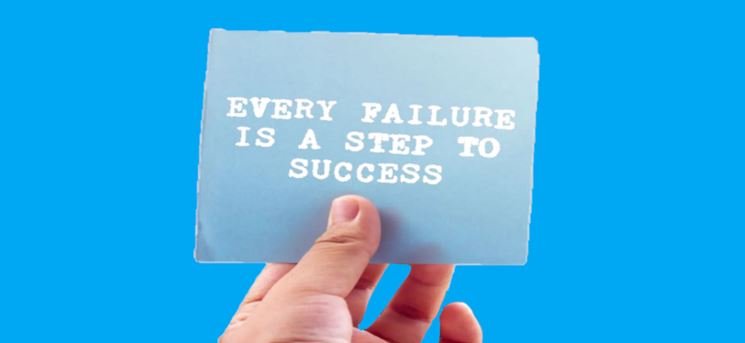Table of Contents
Introduction: Learn From Your Mistakes
Mistakes are often seen as failures or setbacks, but they can be valuable opportunities for growth and learning. Everyone makes mistakes, no matter how big or small. However, what sets successful individuals apart is their ability to embrace these mistakes and learn from them. In this article, we will explore the importance of learning from our mistakes, analyze famous case studies that demonstrate the power of embracing mistakes, and provide actionable steps to help you cultivate a growth mindset and turn your mistakes into stepping stones to success.
Why Learning from Mistakes is Important
Learning from our mistakes is crucial for personal and professional development. When we make mistakes, we gain valuable insights into what went wrong and why. These lessons learned can guide us in making better decisions and avoiding similar pitfalls in the future. We can learn from our mistakes. When we know what we did wrong, we can figure out how to do better next time. Our growth and evolution as individuals is a direct result of these experiences.
Create a plan to implement the changes needed. Set specific, measurable goals and outline the steps required to achieve them. This proactive approach makes sure that you apply the lessons learned.
Step-by-Step Guide to Learning from Mistakes
1. Acknowledge Your Mistakes
The first step in learning from mistakes is acknowledging them. Denial or blame-shifting only hinders growth. Own up to your mistakes and understand that everyone makes them.
2. Analyze What Went Wrong
Take a closer look at the mistake. What were the contributing factors? Was it a lack of preparation, poor communication, or something else? Identifying the root cause helps prevent future errors.
3. Take Responsibility
Accept responsibility for your actions. This doesn’t mean you should be overly harsh on yourself, but recognize your role in the situation. This accountability is crucial for personal development.
4. Learn from the Experience
Reflect on the lessons learned. Ask yourself:
- What can I do differently next time?
- How can I make sure this doesn’t happen again?
- What skills or knowledge do I need to improve?
5. Make a Plan
Create a plan to implement the changes needed. Set specific, measurable goals and outline the steps required to achieve them. This proactive approach makes sure that you apply the lessons learned.
6. Seek Feedback
Do not hesitate to seek feedback from others. Their insights can offer valuable viewpoints that you may not have previously considered. Take this feedback into consideration to improve your approach.
7. Practice Patience and Perseverance
Learning from mistakes is a continuous process. Be patient with yourself and understand that growth takes time. Persevere through challenges and keep striving for improvement.
Practical Tips for Learning from Mistakes
Keep a Mistake Journal
Document your mistakes and the lessons learned. This helps track your progress and provides a reference for future situations.
Develop a Growth Mindset

Embrace the belief that you can grow and improve through effort and learning from mistakes. This mindset encourages continuous development. Having a growth mindset means believing that our capabilities and intellect can be enhanced through persistence and effort. This mindset allows us to view mistakes as opportunities for learning and improvement, rather than as failures. By adopting a growth mindset, we can shift our perspective and approach mistakes with curiosity and a desire to learn.
Once we have embraced a growth mindset, we can start turning our mistakes into opportunities for growth. Instead of dwelling on our failures, we can focus on the lessons learned and how we can apply them moving forward. This involves reframing our mistakes as valuable experiences that contribute to our personal and professional development. By shifting our mindset, we can extract the positive aspects of our mistakes and use them to fuel our growth.
Surround Yourself with Supportive People
Build a network of friends, family, and colleagues who provide constructive feedback and encouragement. Their assistance can prove to be extremely valuable in difficult situations.
Focus on Solutions, Not Problems
When a mistake occurs, shift your focus from the problem to finding a solution. This proactive approach fosters a positive mindset and helps you move forward.
Celebrate Your Progress
Acknowledge the progress you’ve made. Celebrate your successes, no matter how small, and recognize the effort you’ve put into learning and growing.
Case Studies: Famous Mistakes and Their Lessons
Throughout history, there have been numerous examples of individuals who turned their mistakes into opportunities for growth. One such case is Thomas Edison, the inventor of the light bulb. Edison famously said, “I have not failed. I’ve just found 10,000 ways that won’t work.” His persistence and willingness to learn from his mistakes eventually led to the successful invention of the light bulb. This case study reminds us that failure is not the end, but rather a stepping stone towards success.
Steve Jobs, who co-founded Apple, is another significant example. Jobs was fired from his own company in the 1980s, which could have been seen as a devastating setback. However, he used this experience as an opportunity to reflect and learn from his mistakes. Jobs went on to create Pixar Animation Studios and later returned to Apple, leading the company to unprecedented success. His ability to embrace failure and learn from it played a crucial role in his eventual triumph.
These case studies demonstrate the power of embracing mistakes and highlight the importance of resilience, adaptability, and a growth mindset. By learning from their mistakes, these individuals could achieve remarkable success.
Ways to Learn from Common Mistakes
Mistake: Poor Time Management
Lesson: Prioritize tasks and create a schedule to manage your time effectively.
Mistake: Miscommunication
Lesson: Improve your communication skills by actively listening, clarifying messages, and confirming understanding.
Mistake: Overcommitting
Lesson: Learn to say no and set realistic expectations to avoid burnout and maintain balance.
Mistake: Ignoring Feedback
Lesson: Value constructive criticism and use it to enhance your performance and decision-making.
Conclusion
Embracing our mistakes and learning from them is a vital component of personal and professional growth. By viewing mistakes as opportunities for learning, we can extract valuable lessons and insights that propel us forward. Through case studies, we have seen how successful individuals have used their mistakes as stepping stones to success. By recognizing our mistakes, cultivating a growth mindset, and taking proactive steps to prevent future mistakes, we can unlock our full potential and achieve greater success in all areas of life.



